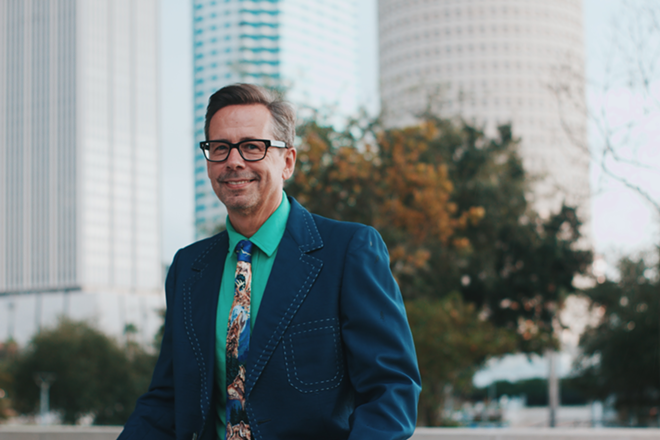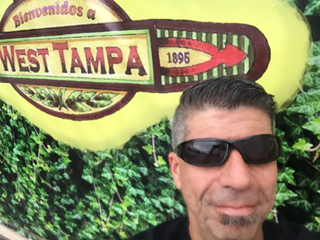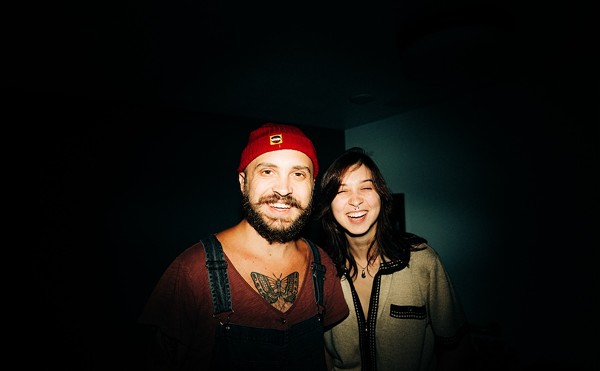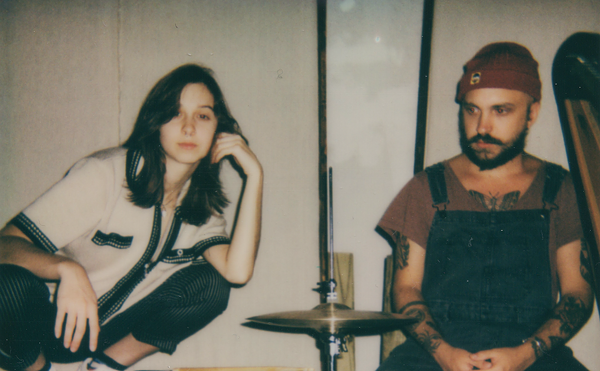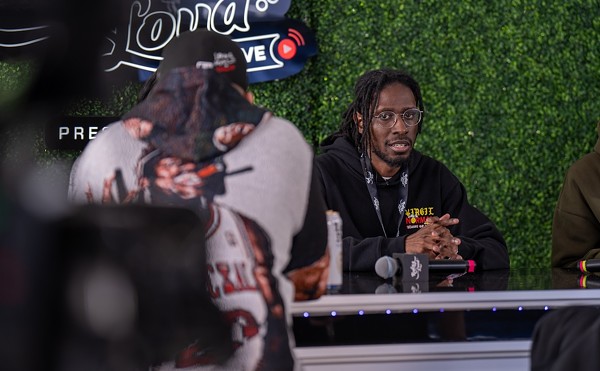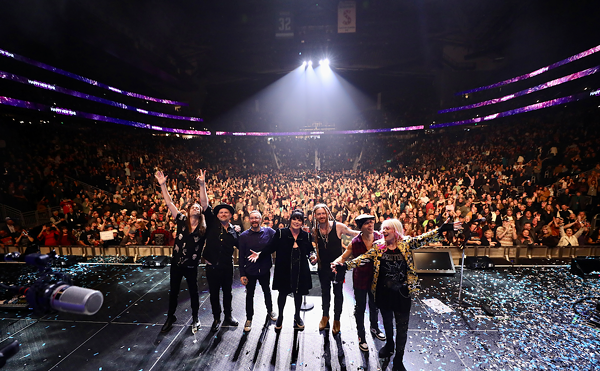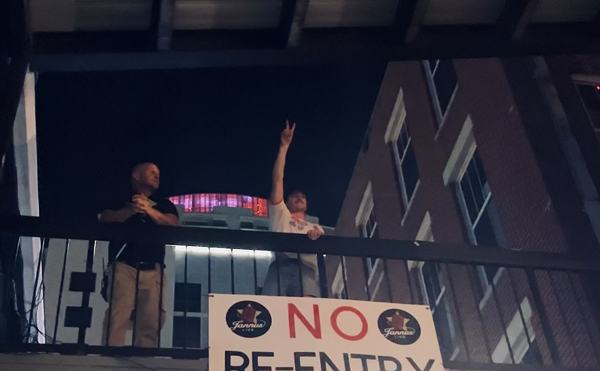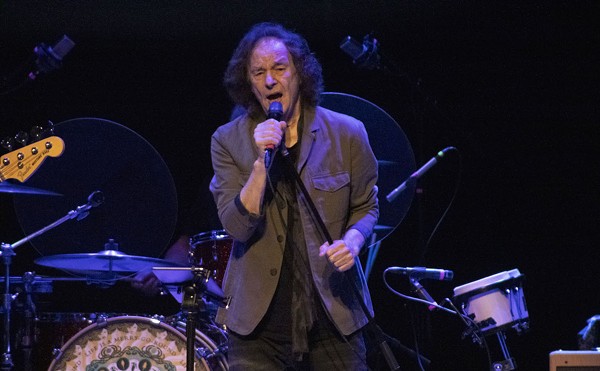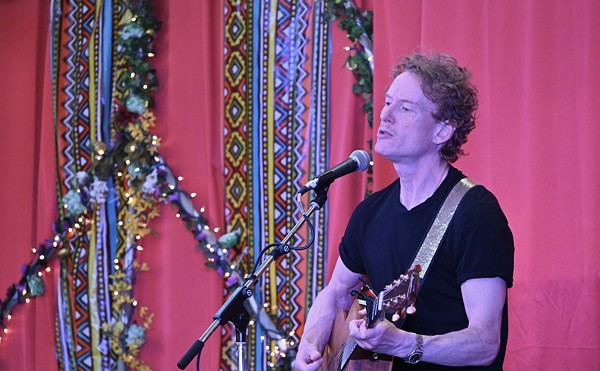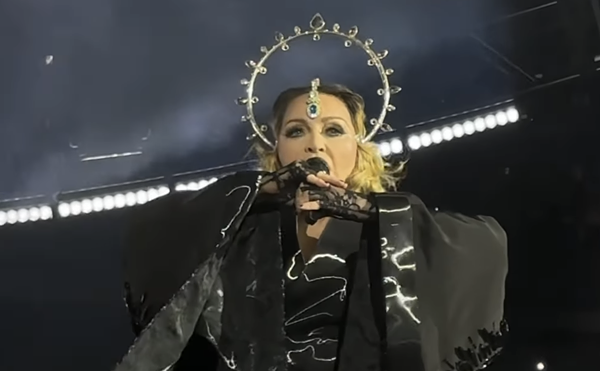For many of a certain age, the emergence of MTV in the early '80s was a revelation. Musical tides were turning, but the exciting sounds coming out of England weren’t always easy to find Stateside. Thanks to the tube, however, kids in America were getting turned on to innovative bands like Duran Duran, Adam and The Ants and Haircut 100, which got absolutely no radio airplay in the U.S.
The latter, oddly named band boasted a fresh blend of jazz, funk and pop and created a sound all its own. Fronting the bright, jovial band was fresh-faced, effervescent singer Nick Heyward, who also wrote all of the band’s fantastic, catchy songs. After parting ways with the group after its delightful 1982 debut, Pelican West, Heyward, 57, embarked on a solo career that allowed him to remain active and ever-present on British sales charts.
From his exquisite solo debut, 1983’s North of a Miracle, through his most recent effort, last year’s perfectly crafted pop gem, Woodland Echoes, Hayward has amassed an impressive catalog of elegant, stylish records that brilliantly show off his many musical gifts and talents.
Interestingly, the Beckenham, England native is now a transplanted resident of Tampa Bay, so CL sat down with this comical, down-to-earth and charming fellow. What follows are highlights of an extended, enlightening and fascinating chat.
Starting at the beginning, Pelican West was a huge success with lots of hit singles. What was that like for you to experience at such a young age?
I didn’t realize how young I was. I know that sounds silly because I knew how old I was at the time but, in hindsight, recently, our guitarist couldn’t make some shows and his son stepped in to play and he’s 19. And I thought, “Wow! I was his age when I started doing this and I thought, my god, he’s a kid!”
Talking about age, it seemed that Haircut 100 was very relatable to young fans but you also had fans of many different age groups too. What do you think it was that appealed to so many different groups of listeners?
I think it was because of the sophisticated music; it got sophisticated really quickly. I’d been through punk and the other guys hadn’t. Our bass player Les (Nemes) hadn’t but (guitarist) Graham (Jones) had, so we were the ruffians in the band. And I don’t think Talking Heads or XTC or Buzzocks or definitely not Sex Pistols were on their list (of influences), but I also had a background of loving jazz, especially big band jazz through my father. My first gig was Oscar Peterson, Ray Charles and Count Basie.
Soon after that album, you started a solo career. Was that scary for you at the time?
Super scary because I’d lost it. Mentally I was overworked and I didn’t know why. When you’re younger, you don’t know why. But I felt it and, I tried to tell people and they were like, “What?” It was kind of like trying to tell someone what water was like who’d never swum before. You have to dive in yourself to know what water is. I was trying to tell people what this feeling was but I couldn’t explain it myself.
That’s really scary to go through at such a young age.
It was but it also had to do with being the leader of a band where people in the band looked to you for where you were going. But I knew where I wanted to go; I wanted to work with (engineer and record producer) Geoff Emerick. I’d heard (Elvis Costello’s 1982 album) Imperial Bedroom and I thought, this is the way. Haircut 100 would be amazing if we sounded like this because I thought we sounded really good, but a band likes to progress. It’s like when you hear (XTC’s) Andy Partridge; he’ll talk about the early XTC records being the teenage years with that sort of exuberance but he’d moved on.
So, I didn’t want to do another Pelican West because I was looking to do something more vast, something more like (debut solo release) North of a Miracle so that’s where I was going and, the guys didn’t see it. And because of my head being so frayed and overworked, it was harder to communicate. I tried, but there was a lack of communication and they chose to work with the producer we’d worked with and stick with the funk. And I wanted to as well because, it’s like, once the funk is in you, it’s in you! It’s like David Byrne who scratches around on his guitar and still grooves! He’s got swiveling hips!
So that’s what I was aspiring to. I’d just recently discovered The Beatles, too. I missed them until about 1982. Don’t know why… I knew of them, but you find it when it’s the right time. So to get to work with Emerick who’d made this stuff, I thought, “Why wouldn’t the guys go for this?” But a few of the guys didn’t like The Beatles, so there was a definite block there. They just thought I’d discovered The Beatles and had gone nuts. But I thought, “Hey man, if you can’t like ‘Penny Lane,’ then there’s something wrong with you.”
All of your solo albums have been highly regarded and acclaimed. Does that mean anything to you? Do you read those reviews?
Um… I think I’m just pretty transparent like anyone else. I like to read the interesting things. I can spot when it’s personal or when its negative or when it’s actually constructive and I really like the constructive stuff. But negative stuff you can learn from, too, but when you focus on the good stuff, it’s just raw encouragement. It’s the process of being an artist. It’s like painting; you’ve painted something and someone says to you, “I really like that… it really resonates with me,” and you can tell as well if someone’s just saying that to make you feel good.
Your music has been described in so many different ways; dating back to the Haircut 100 days and throughout all your solo releases, it’s been called pop, funk-influenced, jazz-tinged, R&B, for example. Was that a conscious effort on your part or was that just your varied tastes coming through?
At first you try to consciously do that, but your ability as a musician gets in the way. I wanted to do lot of things, but I couldn’t. When we first started, we were like a punk band because that’s what we could do. But then I discovered that I could play quite rhythmically, so it got a bit funkier and that was through the influence of David Byrne. I’d listen to Ray Charles and Steely Dan; I listened to those records for hours and hours, but it just wasn’t in there. I’ve learned to do some more intricate stuff now, and I’m progressing. I’ve done Woodland Echoes now, but I’m not going to do another Woodland Echoes. I’m doing this new stuff that already has the influence of all the classical music I’ve been listening to since 1998 and, again, I listen to say Mahler’s Fifth “Adagietto for Strings” but how on earth could I ever interpret that? But I’ve learned to play piano more over the years, and you learn more stuff and you keep learning. I want to keep learning even more.
Speaking of, Woodland Echoes, your most recent album, is absolutely brilliant. It sounds great.
I didn’t have much to go on; I didn’t have a budget and I didn’t have a record company. I was just at home and I thought, “OK I’m doing this.” So, I was sitting in the spare room with a window open, and I was being creative. This was the beginning of what I’ve always wanted to do and that is to be an independent artist. There were no restrictions at all.
On Woodland Echoes your voice sounds incredible, the songwriting is fantastic and you sound reenergized. To what do you attribute that?
Um…I think the voice is not so frustrated because I’m not.
In what way?
Years ago, my son had convinced me to start a MySpace page and that was the beginning of reconnecting with people I’d lost connection with because after being with (record labels) Sony and Creation Records, it was like that’s it.
Were you ready for something different?
Well, it wasn’t my choice. (Creation Records founder) Alan (McGee) had said, “Guitar music is dead” in the press, and it was looking like that. It wasn’t, but he was just observing what was going on at the time. It wasn’t great, suddenly, in 1998. It wasn’t a great time for that, so that didn’t help. So it was a bit like ‘OK… what do I do?” Do I go again to try and get another record deal? It was an interesting time because, the identity that I’d been building up the whole period throughout that decade and the previous one, or what you thought was my identity, had just disappeared.
Yet I was in this beautiful, clear place of complete peace. I was just in my kitchen, in my underpants, dancing. You know, no drugs were involved, but I was in raw happiness, and it was through the frustrations of all this stuff like, record contract going, publishing deal going, all your structures had completely disappeared. I was newly single in that kitchen, which was a strange thing to be, suddenly, there, in that place. This was a rented accommodation because my house had gone, too, so it was a long list. My mother was told that she was dying and she had months to live.
So all these structures that had been there were suddenly gone. I was tearing my hair out and instead of doing that, this bliss arrived, in the eye of the storm. There it was and suddenly, everything I’d always wanted to genuinely be like was utterly fulfilled. I’d never been there. I’d been striving for something.
So, I may have lost my record deal, I may have lost my relationship, I lost all this stuff, my mum, the lot. So I didn’t even think about going to record companies and I didn’t think about anything. I was in a blissful place. I was reading a lot of books, and I thought, “How on earth can I rejoin the music business feeling [like this]?” It was like suddenly you’ve jumped out to sea, and you’re going to be an earth creature now and somebody says “You gotta go back in the sea.” I can’t go back in the sea, I won’t be able to breathe. There’s no way. I’m not going back in there without some flippers or a snorkel or something. And then one day, this dolphin had a word with me on this jetty and said “Come back…it’s OK,” and so, I dived back and I found out that I could breathe.
Well, I’d like to thank that dolphin! But that sounds like it was a pivotal time in your life.
Definitely, but I try to not hold it up as too amazing. You want to bask in it. It’s that thing of trying too hard. It’s like songwriting. If I’m trying too hard, nothing happens. And it happens when you stop trying. Life begins when you stop trying.
It sounds like there a layer of pressure that was lifted off of you.
It’s that thing of not trying. I keep having to remind myself to not try because it’s almost like that is the place that is the point. And when you’re younger you really are trying, and you’re doing stuff but you’re not really, really trying. When you get to your 30s you’re trying to stay relevant sometimes; you know, there’s a lot of trying that goes on.
So what’s next for you? What are your immediate plans? You mentioned working on new music. Is there a new album in the works?
Yeah! I’m doing it now. I’m just at home being inspired. We’re working out plans whether to go to England to record some things, and we’ve been toying with the band as well. It’s really good when we play together. It would be lovely to capture that in a similar way, to be that guy because, I like that role, being the guy in the band that comes up with the songs. Then the band learns that song and then records that song, do a take of it, choose the best take and then, that’s it.
What about playing live? Especially now that you’ve made Florida your home. We’d love to see you playing live in the area. What are your thoughts on that?
I’d love to!
Would you play with a band or as a solo act?
Sometimes I haven’t got a lot of choice. It’s whether you get a band together or being solo, it’s always expensive, but we can actually start a band. It would be excellent to do that. But I can play on my own. They’re acoustic-based songs because they’re mostly written, and have been written that way, but they’re not acoustic rendition kinds of songs that lend themselves to acoustic versions so I like to have colors there. All my songs don’t lend themselves to acoustic performances. I’m probably doing a tour that being lined up right now in the U.K. in April.
Looking back, and because you started out at such a young age, what advice would you now give your 20-year-old self now if you could?
Don’t worry so much. I’d say don’t worry… which he wouldn’t listen to. He’d still be worrying. That’s the worst thing to say to someone when they’re worried. That young Nick wouldn’t listen, bless him. He’d start to listen when I was 37. Up until then, he couldn’t be told anything. He might have wanted to meet me at 17. He might have said “Cool! This is an old dude who knows stuff!” I can now talk to my daughter, and tell her I’m similar, we’re similar people but she’s going to learn in her own way. It always come from life experiences.
For fun, what do you consider to be a good Saturday night record? Say you’re at a party and you’re asked to put on a record to lift everyone’s spirits; what would you play?
Well I follow somebody on Twitter called Simon Price, and he lives in Brighton (England), and he’s a DJ. I keep imagining him, in Brighton, playing to a bunch of trendy people, and I keep thinking, can you imagine Simon Price playing this one, like “Breezin’’ by George Benson or “Sister Golden Hair” by America, which I love! That’s my new best friend! That song’s bass line! That’s like the bass line I’ve been picking up and playing all my life, and I’d never heard that song until living in Florida. We (he and wife, Sara) are big on yacht rock, and I hadn’t been before, so I’m discovering all this music. So, I’d play that to lift up my spirits but I think everyone in the U.K. would walk out!

